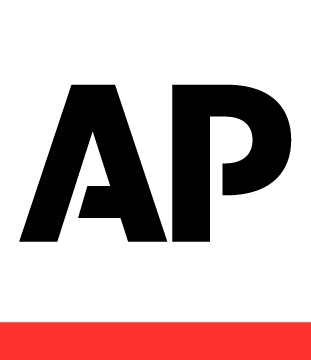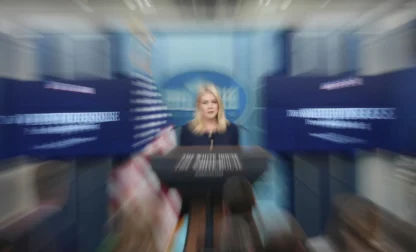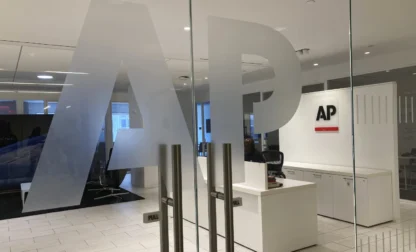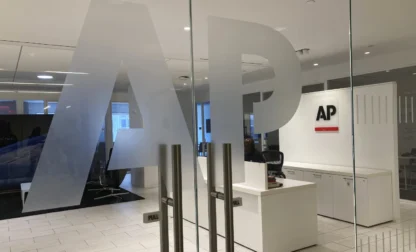PARIS (AP) — Millions of viewers worldwide could miss live coverage of the commemorations marking the 70th anniversary of D-Day next week because the French president's office reversed a decision to grant international news agencies free access to the broadcast.
The administration of Francois Hollande has handed two French broadcast networks exclusive rights to the main international ceremony, and they are now imposing sports-style syndication fees on global news agencies, satellite and cable news channels, and online news outlets.
The French host broadcasters, France Televisions and TF1, are demanding that global news providers AP, AFP, Reuters and ENEX pay nearly 200,000 euros ($265,000) collectively for live broadcast and online streaming coverage of the official ceremonies, which feature at least 18 heads of state.
The French networks are providing coverage free to European state broadcasters, who belong to the 100-member European Broadcasting Union consortium.
AP, Reuters, AFP and ENEX together represent over 1,500 broadcasters and thousands of digital platforms.
The four agencies have protested the decision, calling for all news organizations to be granted free access to live coverage of an event of global importance, as has been common practice at similar events elsewhere.
“We are dismayed that the Elysee Palace is denying The Associated Press and other international news agencies fair access to live broadcast coverage of D-Day commemorations, which will be attended by world leaders and hundreds of veterans,” said Kathleen Carroll, senior vice president and executive editor of AP.
“By granting access to only a few select channels and charging prohibitive sums, millions of viewers around the world will be unable to witness this historic, global event, the solemnity of which will reflect the commitment of an international array of forces 70 years ago,” Carroll said. “We believe the Elysee and its French broadcast partners should allow free and unrestricted access to all newsgathering organizations.”
The global news director of Agence France-Presse, Philippe Massonnet, called the restrictions “incomprehensible.”
“The commercialization of this historic event is shocking,” he said. “We hope that the presidency of the French republic will allow agencies the right to film and distribute the event live under conditions that are acceptable and in conformity with the spirit of freedom that these ceremonies represent.”
The Elysee reversed itself May 15 despite having provided the agencies with verbal assurances on March 27 and written assurances on May 7 that they would be granted access to the broadcast to distribute free of charge to affiliated news organizations outside France.
A subsequent request by the news agencies to cover the main international ceremony live themselves was denied.
The decision means that D-Day veterans who are too frail or can’t afford to travel to France for the 70th anniversary may not be able to see the main ceremony on television or online.
On Friday, after the agencies protested the decision, an official at the Elysee said that the live broadcast signal would be made available free to television networks who ask — but not to news agencies, satellite or cable channels or Internet video providers, who provide news to millions of viewers.
The Elysee could not explain how individual television networks would receive the broadcast, since they normally receive live coverage from news agencies over dedicated satellite networks.
The palace official, speaking on condition of anonymity because presidential policy does not authorize her to be publicly named, insisted that the Elysee is committed to free media access. The official said the high fees charged by the host broadcasters are outside the domain of the president’s office.
Antoine Guelaud, TF1’s news director, insisted that the host networks are just seeking to defray technical costs. “We are not making money on this,” he said Friday.
Officials at France Televisions did not respond to requests for comment.
Normally at such events, news organizations make arrangements to share coverage if security or space restrictions make it difficult to allow unfettered access to world leaders. A small group, or pool, of journalists covers the event, and then provides the video, photos or text to competitors to ensure fair access for all.
AP, a not-for-profit news cooperative founded in 1846, said it considers it especially inappropriate that commemorations for D-Day are being restricted. The ceremonies honor the fallen soldiers and memorialize the D-Day landings that opened up a Western front and helped defeat Hitler in World War II.
The restrictions appear to be part of a larger effort by French networks TF1 and France Televisions to syndicate coverage of the French president. Since his election in 2012, they have added large fees that the agencies deem to go beyond reasonable technical charges for basic access to Hollande’s appearances.
This effort runs counter to international practices and raises issues of media freedom. This does not happen in other world capitals, where news agencies have freer access to cover leaders’ events or to pool images.



